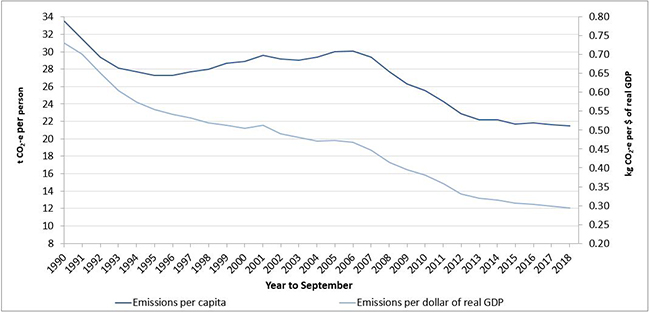
Today, some schoolchildren around Australia will wag school and march to promote action on climate change.
In discussing this with my 16yo son, I took the opportunity to draw a parallel with the ill-fated Children’s Crusade of the early 13th century.
Unarmed, and “led” by the 12 year old Stephen of Cloyes, they bore crosses, banners and an optimistic assumption that once they got to the Holy Land, they could convert Muslims with persuasion and divine intervention.
Of course, they were cruelly deceived. None reached the Holy Land, and many never went home either — starved, drowned, or sold into slavery.
I suggested that there have always been those willing to exploit the idealism and naïveté of youth, even if the putative cause is a worthy one.
We’ve also had long conversations about how protest activism, political power, and social change intersect. Do these forms of protest ever achieve their aims? Who turns up to co-opt and use well meant idealism for more cynical political purposes?
My son asked, reasonably, if he could go into the city today and observe the rally, because he wanted to see it for himself and make up his own mind. I thought it was a good idea and he’s gone with a posse of other students from his school.
I have no problem with this, because I want my son to be not only politically active in his life, but also to have the ability to recognise competitive virtue signalling when he sees it, and to employ his critical thinking toolkit to evaluate arguments for bias, vested interest, or factual errors.
I suspect he’ll see all those things today, and in spades.
When the issue of Climate Change came up this week at Hawkesbury Council, the Greens advanced a motion to hold a workshop locally to discuss our “Climate Emergency”.
Passing (for the moment) that the Greens also want to sell MDMA from Supermarkets, it was observed that an identical motion was put to Blue Mountains City Council within the last weeks. It’s manifestly part of the silly season of election politics.
I made some remarks and enclose the audio below, with my remarks commencing at 25m40s.
I think all Australians want to be good stewards of the environment. This involves both slowly transitioning to renewable and cleaner sources of power, and strengthening protections for fragile ecologies. As the deputy chair of the Hawkesbury River County Council, I sit on an organisation whose sole remit is biosecurity, weed control and the protection of our waterways.
But we shouldn’t fool ourselves into thinking that merely changing our lightbulbs to LED or putting solar panels on the roof is the magic bullet that will mitigate climate change. It’s an important symbolic gesture, but if we really want to fix the problem, it’s not where the main game is at.
World industrial carbon emissions are 9.8 gigatonnes, with Australia contributing 0.536 Gt, or 5.46% of the global total.
In turn, the 67,000 residents of the Hawkesbury represent 0.27% of the larger Australian population of 24.6 million. On a proportional basis, this means that the Hawkesbury contributes less than 0.0147% of global Carbon emissions — one part in 6,783.
Like Steven Pinker, I prefer to look at the bigger picture and find reasons for optimism.
The most recent Quarterly Update of Australia’s National Greenhouse Gas Inventory, a scientific publication from the Department of the Environment and Energy, points out that Australia’s Carbon emissions per capita are at their lowest levels in 29 years, being 34 tonnes per-person per-year in 1990. As of September 2018, they are at 22 tonnes, and falling.

Similarly, Carbon emissions per dollar of GDP was 0.80kg of CO2 per dollar of real GDP in 1990. Today, it is 0.30kg, and falling.
The solution to climate-change and sustainable energy-generation issues largely sits at federal, and international level, through the covenants we enter into with other nations, the initiatives we support to develop sustainable and carbon-neutral sources of energy, and the pressure we put on other global emitters of carbon that simply dwarf what we do in our own community.
The fact is that the single biggest thing Australia could do to reduce Carbon emissions is embrace nuclear power. I don’t see the Greens falling over themselves to endorse that. Australia has the world’s largest supplies of Uranium, not to mention Thorium, which represents the next generation of nuclear fuel whose waste products can’t be refined into bombs.
What Australia needs is reliable baseload power, which is why it is so genuinely difficult for us to wean ourselves off coal. Energy storage technology has not advanced quickly enough for widespread or cost-effective adoption. I hope it will, and again its worth pointing out that Western Australia has the largest deposits of Lithium in the world. We could and should be leading research, development and commercialisation in this field.
In the meantime, Coal will continue to be needed to provide our baseload power. Neglect of generation in this sector is one contributor to the doubling of electricity costs over the last decade. Australia will make the transition to 100% renewables, but it cannot come at the cost of the whole economy. Those who push too hard on renewables fail to understand that only a nation with a strong economy has the ability to invest in renewables in the first place.
However, I think of all the other benefits that would flow from better international action on climate change. These include not basing the tenure of our whole civilisation on the consumption of resources which will some day run out; the advantages of cleaner air and water, especially around our major cities, or not forking out hundreds of billions of dollars to middle eastern countries that hate the West and gladly use the money to fund fundamentalism against us. There are also clear economic benefits in spawning new industries in renewable energy and scientific research.
Holding a workshop on a so-called climate emergency here in the Hawkesbury will not solve those formidable challenges. It is cynical, competitive virtue signalling at its worst.
And today, we can expect representatives from the Greens, from GetUp, and (probably) Bill Shorten to whip up discontent without a shred of impartiality about the policies of the current government to tackle the problem.